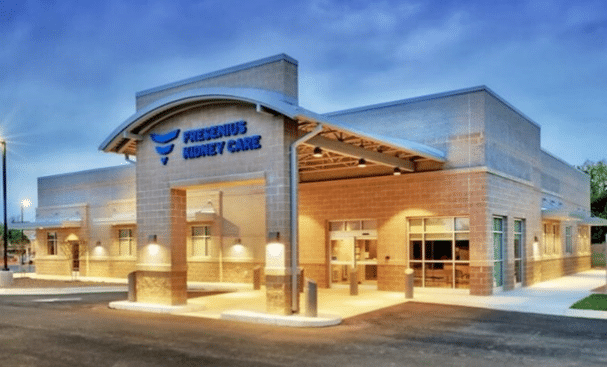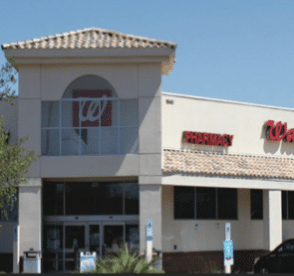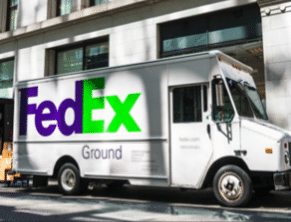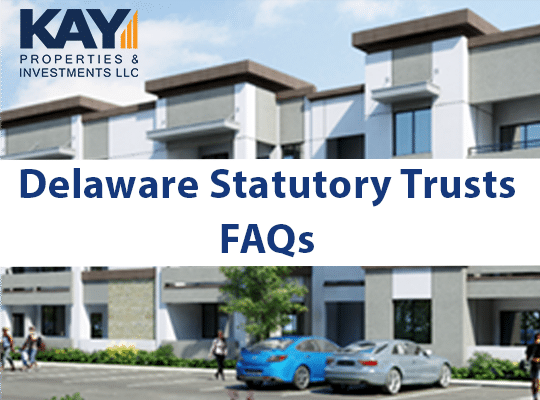Kay Properties has one of the most robust educational platforms in the country when it comes to educating investors on the potential pros and cons of Delaware Statutory Trust investments for 1031 exchanges. One of the most impactful of these educational efforts is our educational client dinners throughout the country where we get a chance to speak directly to investors regarding some of the challenges they face associated with active property management and to discuss the DST as a viable 1031 exchange option.
During these educational dinners, we speak with literally hundreds of investment property owners each year, and it is always interesting that we often hear the same four questions:
- Do I have to have to live in Delaware to invest in a Delaware Statutory Trust?
- What is a Delaware Statutory Trust?
- What does a Delaware Statutory Trust portfolio look like?
- What can a Delaware Statutory Trust do for me?
Because we hear these same questions over and over, I thought it might be a good idea to provide readers answers to these commonly asked DST 1031 exchange questions.
Do I Need to Live in Delaware to Invest in a Delaware Statutory Trust?
First of all, no. Investors do not need to reside in Delaware to invest in a “Delaware Statutory Trust”. Delaware was the state where the law defining a DST and its structure was created, and what’s so special about this real estate investment vehicle is that it’s blessed by the IRS to qualify as “like-kind” investment property for the purposes of a 1031 exchange via Revenue Ruling 2004-86 (https://www.irs.gov/irb/2004-33_IRB#RR-2004-86). Internal Revenue Code (IRC) Section 1031 allows investors to postpone paying tax on the gain of a relinquished property by reinvesting the proceeds in similar property aka “like-kind” property, as part of a qualifying like-kind exchange.
What is a Delaware Statutory Trust?
A Delaware Statutory Trust is a real estate ownership structure that allows multiple investors to each hold an undivided beneficial interest in the holdings of the trust. Understanding how the term “beneficial interest” can be applied to a DST 1031 exchange investment can be the linchpin for understanding why DST investments are so popular. A DST allows each investor within the trust to own a fractional interest in a property with other investors, not as limited partners, but instead as their own individual owner inside the trust. Everyone in the trust will receive their own percentage share of the potential income, tax benefits, and potential appreciation of the whole property. Each owner is treated as owning an undivided fractional interest. This allows the minimum investment to often be as low as $25,000, opening up the opportunity for investors to not only be able to invest in large properties that might otherwise be to expensive to purchase individually (like large multifamily apartment communities, self-storage facilities, and industrial distribution warehouses, etc.), but also be able to invest their money into multiple properties and geographic locations in the hope of creating greater diversification.* The laws of DSTs allow the trust to hold title to one or more investment real estate asset classes that can include commercial, multifamily, net lease, retail, industrial, self-storage, etc.
High Level of Expertise in The Delaware Statutory Trust Investing World
Kay Properties and Investments operates the www.kpi1031.com marketplace and platform which provides 1031 exchange and direct cash investors with access to Delaware Statutory Trust (DST) offerings from over 25 different DST sponsor companies. Register today to receive your free listing of current Delaware Statutory Trust properties available for 1031 exchanges to accredited investors (generally defined as having a net worth of greater than $1,000,000 - excluding your primary residence).
What sets Kay Properties & Investments apart is its high level of expertise in the Delaware Statutory Trust 1031 exchange world. Kay Properties team of DST experts have more than 200 years combined experience, and the firm has participated in more than $30 billion of DST transactions. The founder and CEO of Kay Properties, Dwight Kay, has personally invested in over 50 different DST offerings from numerous DST sponsor companies since 2008. This level of expertise and specialization is one of the many reasons that thousands of 1031 exchange investors have selected Kay Properties and the www.kpi1031.com marketplace to complete their 1031 exchange investments into DST properties.
What Does a Typical Delaware Statutory Trust Portfolio Look Like?
Kay Properties and investments is a nationally recognized specialist in DST 1031 exchanges. As such, we have access to a proprietary marketplace of DST properties that accredited investors can access. On any given day, Kay Properties has anywhere from 20-40 different DST properties from 25 different Delaware Statutory Trust sponsor companies listed on the www.kpi1031.com marketplace.
To get an idea of the caliber and makeup of some of the DST 1031 properties Kay Properties offers, the following examples of DST 1031 exchange properties were assembled for hypothetical analysis.
It's important to note that the following properties are either hypothetical examples and/or fully subscribed DST examples and not available for investment and future offerings will vary. Like all offerings on the www.kpi1031.com marketplace, these are Regulation D Rule 506(c) DST offerings. If you'd like to see a list of currently available DST 1031 properties from typically over 25 different DST sponsor companies with anywhere from 20 to 40 different DST offerings, please visit and register at www.kpi1031.com for current inventory as well as you will receive a free educational book on DST investments.
Also please note that the names listed below are independent of Kay Properties and Investments and belong to their respective copyright and trademarked companies.

| Asset Type: | Medical Building |
| Location: | Nashville MSA |
| Loan-to-Value: | 0% LTV (100% debt-free) |
| Investment Highlights | This debt-free offering is in an income tax free state that consists of a Kidney Care Center that is backed by its corporate parent company and has 10 years remaining on the primary lease term with three five-year renewable options. The property is in a dense infill location and surrounded by national retailers. |

| Asset Type: | Multifamily Building |
| Location: | Clarksville, TN |
| Loan-to-Value: | 0% LTV (100% debt-free) |
| Size: | 37,180 net rentable square feet |
| Investment Highlights | This multifamily building is located in the Clarksville, TN MSA and just four minutes from Wal-Mart, Starbucks, McDonalds, and elementary, middle, and high school. The asset is 100% occupied, and the In-place management company enforces strict income and credit requirements for prospective tenants to qualify for leases. These leasing policies have helped push rents and have delivered a more stable tenant base with higher annual incomes. |

| Asset Type: | Net Lease Pharmacy |
| Location: | Phoenix, AZ |
| Loan-to-Value: | 0% LTV (100% debt-free) |
| Size: | 14,560 square feet located on 1.79 acres. |
| Investment Highlights | This net lease pharmacy DST is located in a densely populated trade area with over 210,000 residents located within 5 miles. The asset is 100% leased by an investment grade tenant, the largest retail pharmacy, health and daily living destination across the U.S. and Europe and located on a signalized hard corner location with a combined traffic count of 48,354 cars per day. |

| Asset Type: | Industrial Distribution |
| Location: | Sterling, VA |
| Loan-to-Value: | 0% LTV (100% debt-free) |
| Size: | 10,695 square feet |
| Investment Highlights | This industrial distribution facility is located in an affluent submarket of Washington, D.C. The asset has a recent long-term net lease, and was built for the tenant as a distribution facility. The facility is located just north of Dulles International Airport, and sits in a desirable infill industrial park. |

| Asset Type: | Net Lease Industrial |
| Location: | Texas Hills Country Region, TX |
| Loan-to-Value: | 0% LTV (100% debt-free) |
| Size: | 58,930 Square feet |
| Investment Highlights | This net lease industrial Delaware Statutory Trust property is a sorting and distribution center in Texas Hill Country. The investment includes a long-term net lease with a worldwide logistics and distribution enterprise. |
What Can a Delaware Statutory Trust Do For Me?
One of the main reasons investors like DST 1031 real estate investment properties is because they qualify as “like-kind” exchange replacement properties for a 1031 exchange. This is one of the major strategies behind investing in a DST 1031 because by “exchanging” one or more pieces of property for one or more like-kind pieces of equal or greater value, the investor can defer their capital gains taxes. However, there are other benefits to the Delaware Statutory Trust structure as well. For example,
- Eliminating the day-to-day headaches of property management
Many participant investors in DST 1031 properties are at or near retirement and are tired of the hassles that real estate ownership and management often bring. They are tired of the proverbial “3 T’s” of multifamily residential real estate: tenants, toilets, and trash, and just want to move away from actively managing properties. The DST 1031 property provides a 100 percent passive ownership structure, allowing investors to enjoy retirement, grandkids, travel, and leisure, as well as to focus on other things they are more passionate about instead of property management headaches.Obviously, as with all forms of real estate investments, there is an underlying level of risk that investors should be aware of including things like economic downturns, vacancies, property values may go down, tenant bankruptcies, that projected returns may be lower than anticipated, etc.
- Tax deferral using the 1031 exchange
Many of our clients have wanted to sell their apartments, farms, ranches, rentals, and commercial properties for years but haven’t been able to find a property to exchange into and just can’t stomach the tax bill after adding up federal capital gains tax, state capital gains tax, depreciation recapture tax and the Medicare surtax. The DST 1031 property solution can potentially provide investors an ability to move from an active to a passive role of real estate ownership on a tax-deferred basis while still potentially receiving passive income. Also, because a 1031 exchange has very tight timelines (45 days to identify exchange property and 180 days to complete the exchange), DST investors can close quickly and typically complete their exchanges within three to five business days as opposed to having to wait 30, 60, 90 days to purchase another outside property.Investors are strongly encouraged to consult their CPA and tax attorney regarding the potential tax advantages as well as risks associated with any DST 1031 exchange properties. Furthermore, investors are encouraged to read the entire Private Placement Memorandum (PPM) for a full discussion of the offering, risk factors and business plan.
- Increased cash flow potential
Many investors of real estate may be unhappy with the amount of cash flow they are receiving due to recent eviction moratoriums, under-market rents being charged to their tenants, multiple vacancies and/or that raw or vacant land is sitting idle and unproductive from a monthly income perspective to the owner. DST 1031 exchange properties provide an opportunity for investors to potentially increase their cash flow on their real estate holdings via a tax deferred 1031 exchange. This potential passive cash flow can come about from regular monthly ACH direct deposit payments from their DST 1031 investments. It again is important to remember that all real estate investments provide no guarantees for cash flow, distributions or appreciation as well as could result in a full loss of invested principal. - Portfolio diversification by geography and property types*
Often, 1031 investors are selling a property that comprises a substantial amount of their net worth. They want to reduce their potential risk and instead of buying one property (such as another apartment building) or a single NNN building (such as a Walgreens or Taco Bell) they decide that investing into a diversified portfolio of DST 1031 properties with multiple locations, asset classes (property types) and tenants is a better fit for their goals and objectives. For example, let’s say an investor sells an apartment building in Phoenix, AZ for $3,000,000 all cash. The investor has no loan on the property so has $3,000,000 of equity that they need to invest via a 1031 exchange. Instead of purchasing just one other building, in one town and in one asset they can now own an interest in, for example, 6 different DST offerings at $500,000 each. This provides diversification amongst asset classes (the investor could participate in 6 different offerings with all different asset classes such as: multifamily apartments, medical facilities, self storage, industrial, net lease retail and build for rent (BFR) rental communities) and geographic locations (for example, the DST offerings may be located in Atlanta, GA, Raleigh, NC, Dallas, TX, Phoenix, AZ, Austin, TX and Arlington, VA). This provides the investor with a level of diversification that they were not able to achieve being in just one building in one market prior to the DST 1031 exchange transaction. As always, it is important for investors to remember that diversification does not guarantee profits or protect against losses.
To access a complete list of current DST properties available for 1031 exchanges and direct cash investments from over 25 different DST sponsor companies, please visit ww.kpi1031.com.
*Diversification does not guarantee profits or protect against losses.

